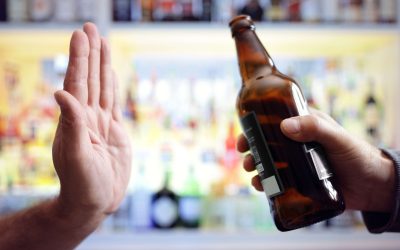Imagine trying to climb Mount Everest without a sherpa or proper equipment. That’s what recovery can feel like without a strong support network. Family, friends, support groups – these are the lifelines that can make the difference between success and relapse. Many people turn to substances as a way to cope with difficult emotions or situations.
Lesson: Understanding and Overcoming Substance Abuse
The Recovery Village operates a network of inpatient and outpatient addiction and mental health treatment facilities around the United States. The Recovery Village admissions coordinators can be reached via our 24/7 confidential toll-free helpline or through chat anywhere on this website. Setting realistic and achievable goals can significantly enhance motivation during recovery.
The Road to Recovery: Overcoming the Challenges of Substance Abuse
- That may be little consolation in the difficult road ahead, but there are also ways to help alleviate some of the burden to overcome your battle.
- Behavioral therapy is one of the most effective treatments for addressing cravings and triggers.
- Through reliable resources and accessible services, we guide people toward self-understanding and connection.
- Like many types of progress, his improvement did not always follow a straight line.
It is equally important to cut ties with negative influences, such as individuals or situations that may trigger substance use or hinder progress. Building a strong support system does not happen overnight—it requires effort, communication, and openness. By nurturing these positive relationships and seeking connection with people who truly care, individuals can feel supported and motivated to stay on the path to recovery. Support networks often become pillars of strength during the ups and downs of the recovery process, reminding individuals that they are not alone. Addiction affects your whole life, including your relationships, career, health, and psychological well-being.
Why Overcoming Addiction Is So Difficult
Physical activity stimulates endorphin production, which can help reduce stress, boost overall mood, and combat feelings of depression or anxiety often faced during recovery. Whether it’s going for a simple walk, practicing yoga, jogging, or engaging in team sports, incorporating movement into daily routines can significantly enhance energy levels over time. There is no one-size-fits-all approach when it comes to addiction recovery. Focusing on finding rewarding, healthy strategies that support your long-term recovery. In addition, addictions can sometimes mask underlying mental health problems, such as anxiety, depression, sleep disorders, and even psychosis.

As mentioned, recovering from substance abuse is a gradual process that begins with baby steps. You can start by setting measurable goals for yourself which you should celebrate when you achieve. This will inevitably extinguish any thought of resorting to illegal drugs or excessive alcohol for satisfaction. Eat a lot of fruits and vegetables as they help keep your body in shape – physically and mentally. You can find new hobbies that will keep your mind away from the desire to use illicit drugs.
About The Recovery Village
Overcoming substance abuse requires a combination of psychological, physical, and emotional strategies. This article will explore three essential coping skills to help individuals conquer substance abuse and lead healthy, fulfilling lives. You must understand alcohol or drug addiction and their causes before you can overcome them.

Engaging in activities that promote relaxation, such as yoga or meditation, can help manage stress and reduce cravings. These practices also provide individuals with a sense of inner peace and clarity. By learning to tolerate distress, regulate your emotions, and improve interpersonal effectiveness, you can gain control over your emotions and make better choices in your recovery journey. Sleep allows the body to heal, reducing physical exhaustion and providing the mental clarity needed to face the challenges of recovery.
- This acknowledgment also marks the beginning of taking control over one’s life and setting goals for a healthier, more fulfilling future.
- Cadabams offers a personalized treatment plan that includes round-the-clock care, and aims at creating a safe recovery environment.
- It is usually a short and sporadic activity without consistent, intense cravings or undesirable effects.
Learn more about your options and find the perfect treatment center in your area
Rehab centers prioritize creating supportive spaces where individuals feel secure during their journey to overcome substance and drug abuse. This environment fosters trust, open communication, and a sense of well-being, essential elements that contribute to the success of alcoholism symptoms rehabilitation programs and the overall healing process. By receiving treatment for both addiction and mental health conditions, individuals can develop the tools and strategies needed to manage both aspects of their recovery.
The three basic steps of urge surfing:
Even if they’ve made some progress during treatment, negative thoughts might start to creep in as they face new obstacles along the way. It’s an extremely difficult and often painful process that takes time and plenty of hard work. Throughout the many obstacles of recovery, it can be tempting for an individual to fall back into their old habits. Their addiction has taught them to seek refuge in drugs or alcohol to cope with difficulty, and recovery is one of the biggest challenges they’ll have to face in life.
Hope in Addiction Recovery: Finding Light in the Darkest Times
Family therapy aims to address the underlying issues within the family dynamics that contribute to substance abuse, while also promoting effective communication skills. By involving the family in the recovery process, it creates a supportive environment that can lead to long-term success. Society, peers, family, and mental health issues can all have an impact. Social pressures can lead teens to try drugs or alcohol to fit in. Family dynamics, such as family history of addiction, lack of parental involvement, or chaotic home environments can also contribute. Mental health issues, including anxiety, depression, and trauma, can lead to self-medication with substances.

This therapist directory is offered in partnership with BetterHelp. If you sign up for therapy after clicking through from this site, HelpGuide will earn a commission. This helps us continue our nonprofit mission and continue to be there as a free mental health resource for everyone. Look for things that will help occupy your time and keep your mind off of drug cravings. overcoming substance abuse Even simple things like talking to a friend, watching a television show, reading a book, or going for a walk can provide a sufficient distraction while you wait for a craving to pass.